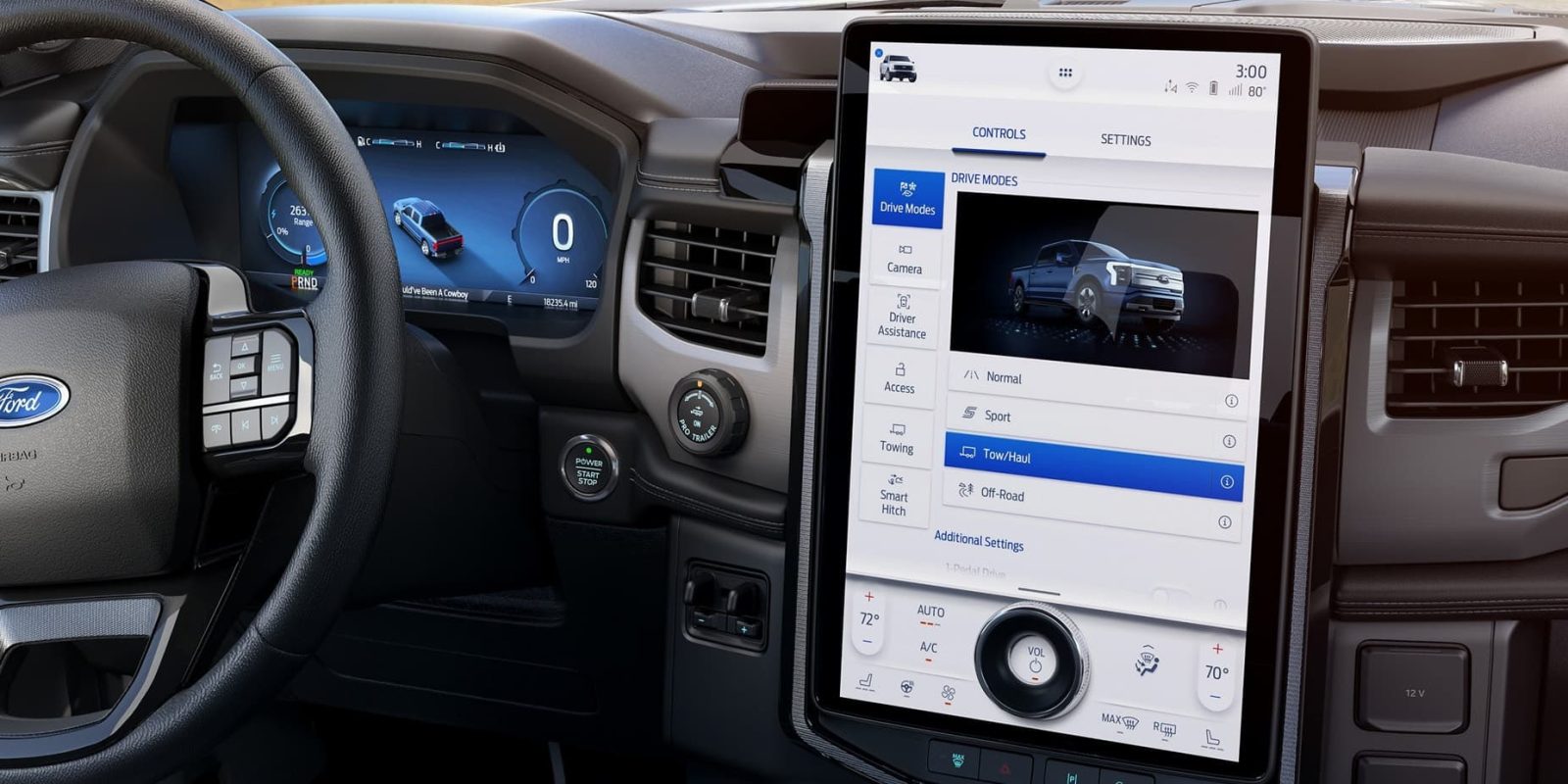
One of Google’s biggest partners for Android Automotive in the US market is Ford, but the carmaker has just announced that its transition to its Android system is well behind schedule and will be delayed by a few months.
Ford has today started shipping one of its most exciting electric vehicles, the Ford F-150 Lightning. The electric-powered truck has been one of the more impressive offerings both from a technical standpoint and for its affordability. The truck starts at $40,000; Electrek has more details on the launch.
Alongside that announcement, though, Ford is also confirming new details regarding its Android Automotive system which will replace existing Sync infotainment systems. Ford originally said that “millions” of vehicles would support the platform by 2023, but things are running behind schedule by “months.”
Ford CEO Jim Farley, commenting on the delay to The Verge, says that Ford and Google are “making a lot of progress” but that the system will ultimately be delayed to “later in the Fall.” Farley said:
We’re making a lot of progress. I’m very impressed with the team that Google has put in place. They’ve been very accommodating — you can imagine that we don’t want a generic solution for the instrument panel for Mustang. We want, like, line lock to do a burnout. But it is slightly delayed, so that’ll be later in the fall.
Another important bit of information Ford confirmed is that existing Ford vehicles will not be able to upgrade to Android Automotive. That includes this first batch of F-150 Lightning models, which will ship with Ford’s Sync 4 platform. Meanwhile, 2023 models will ship with Android Automotive, as will future Ford vehicles.
More on Android Automotive:
- Android Automotive review: Your future in-car OS [Video]
- Polestar 2 gets Android Automotive 11, its third major Android version
- Android Automotive quietly gets its own logo as Google pushes the native OS forward
FTC: We use income earning auto affiliate links. More.



Comments